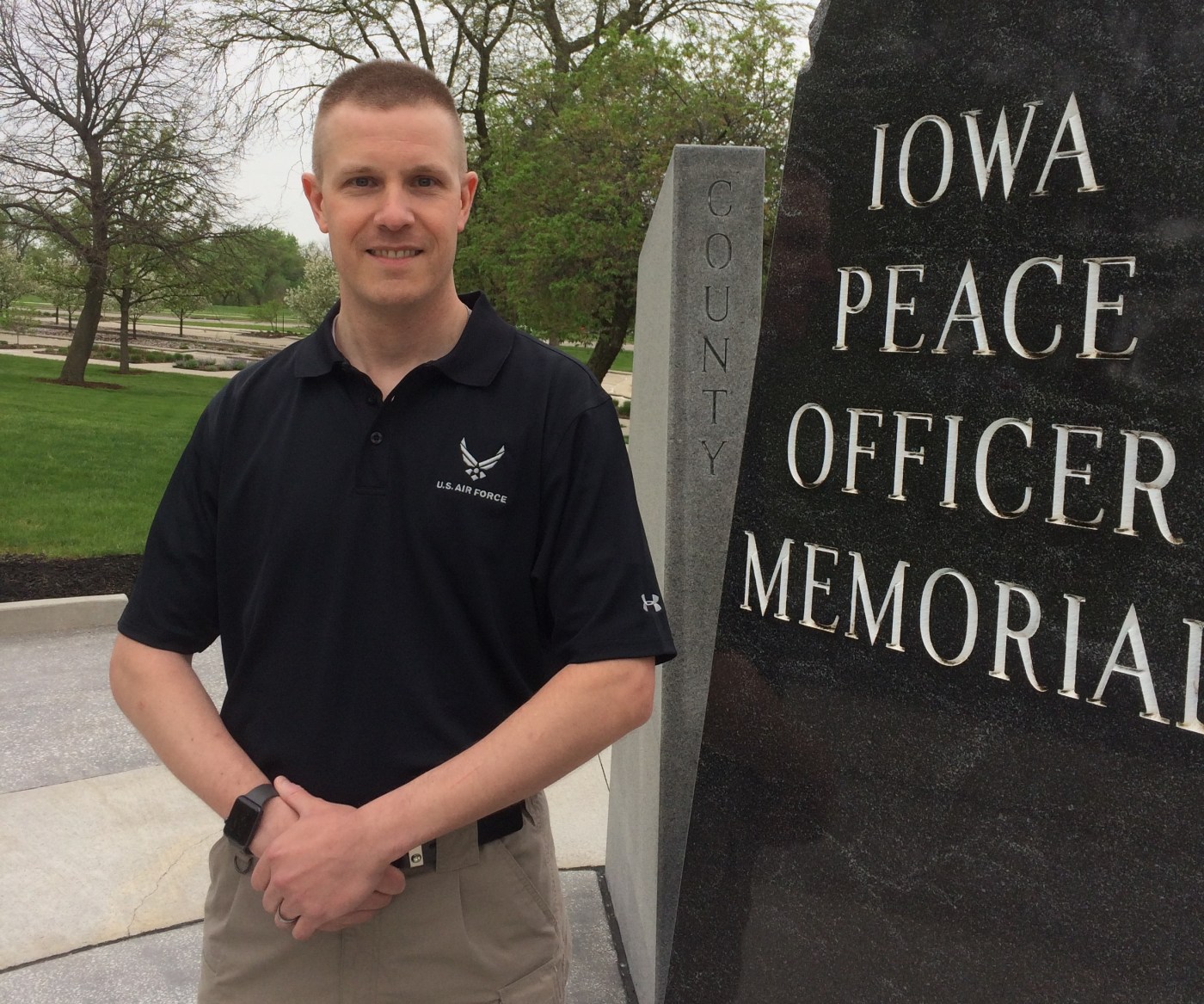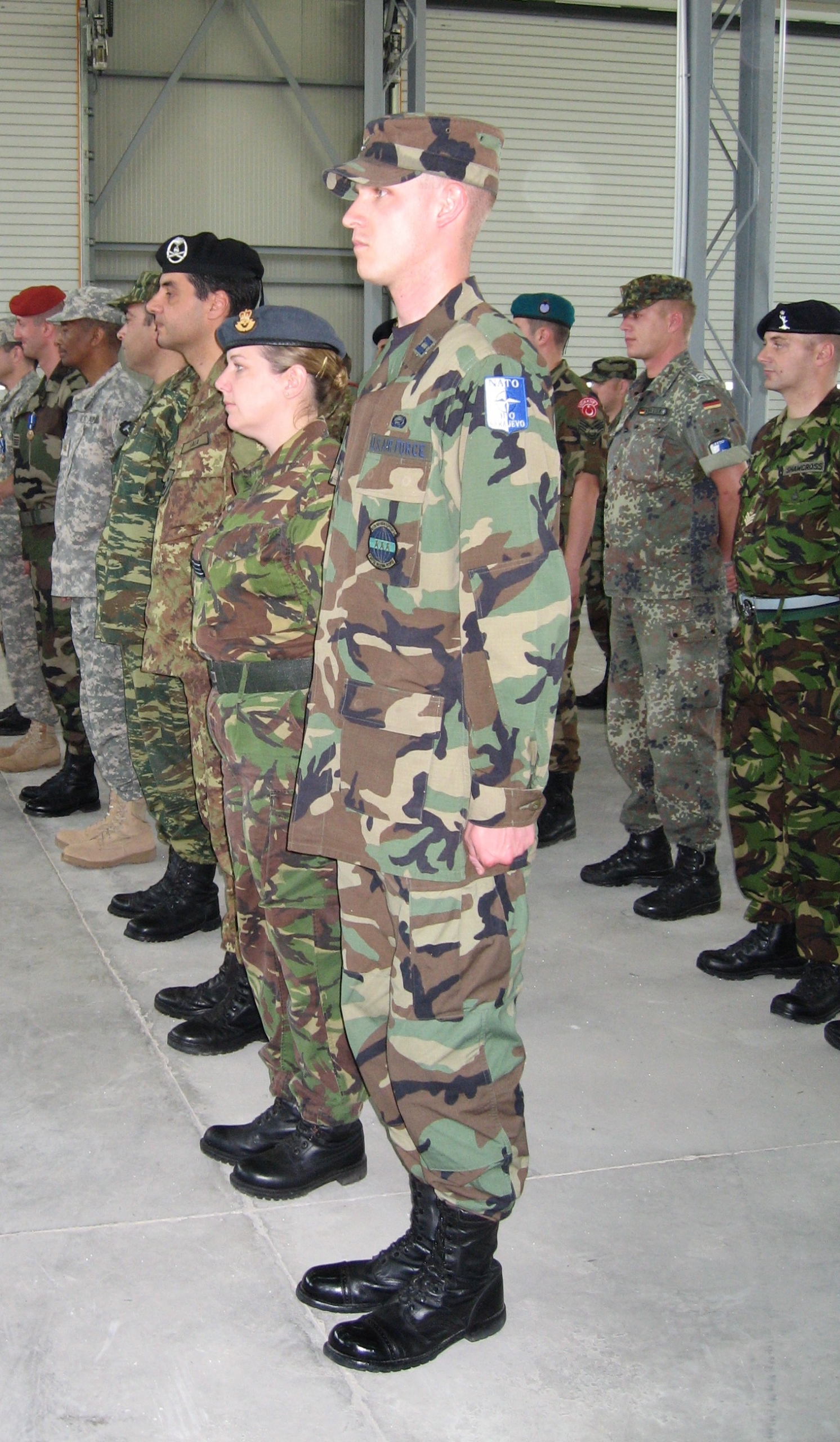The following feature is part of the series, VA Researchers Who Served. These profiles bring to life the critical work that VA researchers are doing for the Veteran community and highlight and recognize their military service, while including a touch of human interest and an inspirational tone.
Robert Otto, an Air Force Veteran, leads the suicide prevention program at the Iowa City VA Health Care System. He’s responsible for overseeing and developing the suicide prevention policies and procedures at the Iowa City VA, where he led implementation of a large suicide-risk screening policy. He also coordinates data collection and reporting for suicide prevention efforts and programming, chairs the Iowa City VA suicide prevention council, and he has participated in five research projects. He served in the U.S. Air Force from 2002 to 2008 and has since been in the Air Force Reserve. His military honors include the Joint Service Commendation Medal, the Air Force Commendation Medal, the Air Force Achievement Medal and the Air Force Outstanding Unit Award.
When and where did you serve in the military? Describe your military experience.
I served active duty in the Air Force from 2002 to 2008 as a personnel force support officer. I was stationed in California, Arizona and the Azores, an archipelago in the mid-Atlantic. I deployed with the NATO-led Stabilization Force in Bosnia and Herzegovina in 2006. While I learned a lot at every respective duty station, having the opportunity to live overseas and work with people from so many different countries and cultures was one of the most profound and important experiences of my life. It gave me a deep appreciation for what it means to be a citizen of the United States, but also being much more open and accepting of other ideas and points of view different from my own. Serving in the military helped me to see things in a very different light, to let go of a lot of my prejudices, and regarding research, to become more aware of and challenge my biases.
What kinds of research are you involved in? How does it potentially impact Veterans?
Currently, I consider myself more of an “end user” of research. I use it a lot to fine-tune how I approach my job and to identify trends and areas of greatest need, particularly in Veteran suicide prevention. I conducted a study as part of my master’s degree coursework on social and occupational functioning of Veterans with mental health diagnoses, with a special emphasis on gender differences. I also assisted my local VA research team in editing articles pertaining to a study investigating the therapeutic benefits between service and therapy dogs for Veterans with PTSD. I’m also the lead author on an upcoming journal article about ethics and access to health care in modern social work practice, and social determinants of health among Veterans. In my profession, I see research as something that can improve health care and treatments, shape public opinion, and implement or change policy. Research has the potential to greatly improve the lives of Veterans on a grand scale.
Based on your life experiences to date, what do you believe are the keys to success? What motivational tips would you share?
After struggling to find myself and where I fit in after returning from active duty, I determined that something that helped me be successful was taking a cold, hard look at myself and identifying what is truly important to me. After taking the uniform off, I suddenly found myself without a strong sense of community, purpose and identity, and I had to redefine my sense of self. I felt like an outsider in my own country, and at the same time I viewed assimilating back into civilian society as weakness, getting soft, failure. However, remembering the intangibles that cannot be taken away – the survivability, strengths and resilience I gained while serving in the military – and with the grounding of family and close friends, I was able to find myself again. Finding out what is truly important to you at your core and what you are good at are keys to success. However, this is not easy. Failure is part of that process. But once you find something that clicks, it’s an amazing feeling and opportunities appear when you least expect them.
More Information
Click here to read the full story.
Click here to read the full series VA Researchers Who Served.
Click here to learn more about VA research.
Topics in this story
More Stories
Watch the Under Secretary for Health and a panel of experts discuss VA Health Connect tele-emergency care.
The 2024 National Veteran Suicide Prevention Annual Report provides the foundation for VA’s suicide prevention programs and initiatives.
Theranostics is a specialized field of nuclear medicine that uses a two-pronged approach to diagnose and treat cancer.







